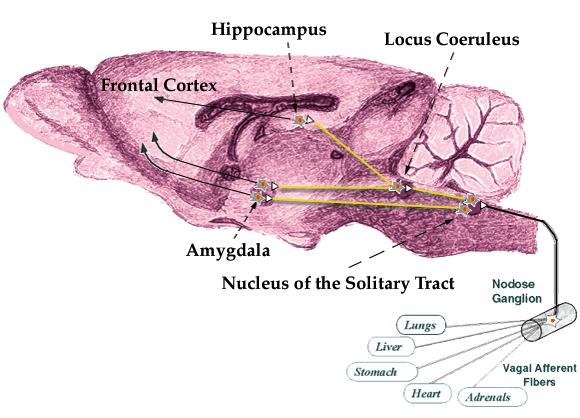 This is the home page of Dr. Cedric Williams. My research is focused on identifying the mechanisms by which neuroendocrine hormones released during meaningful or emotionally arousing events influence the brain to encode memory for these types of experiences more effectively. The basic premises underlying this line of research are:
This is the home page of Dr. Cedric Williams. My research is focused on identifying the mechanisms by which neuroendocrine hormones released during meaningful or emotionally arousing events influence the brain to encode memory for these types of experiences more effectively. The basic premises underlying this line of research are:
- Hormones released following emotionally arousing events produce effects on brain structures by activating ascending fibers of the Vagus Nerve.
- These fibers in turn, transmit neural signals to cell groups in the brainstem known as the Nucleus of the Solitary Tract (NTS).
- NTS neurons that receive input regarding changes in peripheral autonomic or neuroendocrine states convey this information to forebrain structures that have a well established role in memory, such as the Amygdala and Hippocampus, via direct or indirect neural pathways involving the Nucleus Paragigantocellularis (PGi) and the Locus Coeruleus (LC).

The experiments conducted in this laboratory utilize neurochemical and behavioral techniques to examine the functional relevance of the anatomical and chemical connections between the NTS, Amygdala, Hippocampus, PGi and LC during the memory storage process. An understanding of how meaningful or arousing events influence neural activity in specific anatomical regions will provide a model of how the brain transforms representations of everyday experiences into permanent memories. For more information about Dr. Williams, graduate and undergraduate students in the laboratory, or laboratory protocols, please click on the appropriate links above.
